What is the Haiti crisis about?
Haiti is suffering from brutally violent armed gangs, who have encircled the capital, blocked main roads and control access to water, food, health care. Gangs have used sexual violence as a weapon to instill fear.
Haiti’s military is small and only modestly equipped. The Haitian National Police (HNP) is unable to fully contain the outbreak of violence and needs international support so that Haitians can return to a situation where they can go about their daily lives without the fear of being murdered, displaced, kidnapped, or raped.
Media reports suggest that 162 armed gangs with 3,000 “soldiers“exert some control over around 80 per cent of the capital.
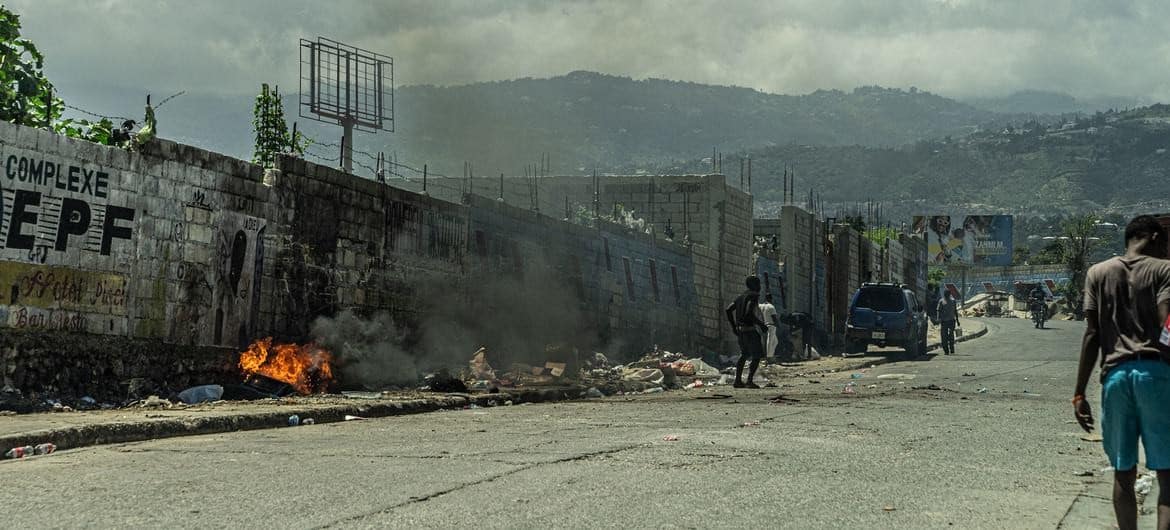
Background on the situation
Haiti became independent in 1804 after a rebellion against France´s decision to reintroduce slavery. From 1915 to 1934 it was occupied by the USA.
Haiti has experienced political instability and violence in long periods of its history. From 1957 to 1986 Haiti was ruled by the dictatorship of the Duvalier family. Since then, there have been democratic and often irregular elections – a military coup and sporadic political violence. The USA sent armed forces to Haiti in in 1994 and 2004.
The last elected President of Haiti, Jovenel Moïse, was assassinated in 2021. The killing left a vacuum of power at the highest level of Haitian government, but Ariel Henry has served as interim Prime Minister and President.
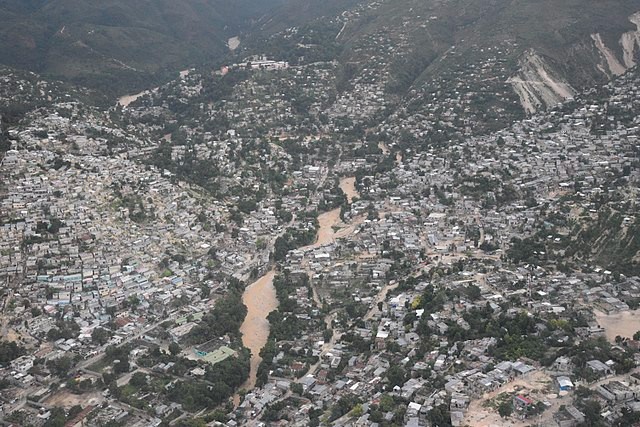
Impact on Haitian people and the environment
Haiti is wracked by violence that has escalated to unprecedented levels.
Between 1 January and 9 September in 2023, 3,000 homicides were reported; there were also over 1,500 victims of kidnapping for ransom. The UN says that some 200,000 people (half of whom are children) have been forced to flee their homes because it’s just too dangerous to remain. Tens of thousands of children are unable to attend school due to insecurity.
One in two Haitians lives in extreme poverty, suffers from hunger, and does not have regular access to drinking water.
In addition to hurricanes, which ravaged the country in 2008, a devastating earthquake hit Haiti in 2010 which killed 316,000 people and left more than one million Haitians were left homeless. Despite an international effort to provide aid Haiti has still not fully recovered.
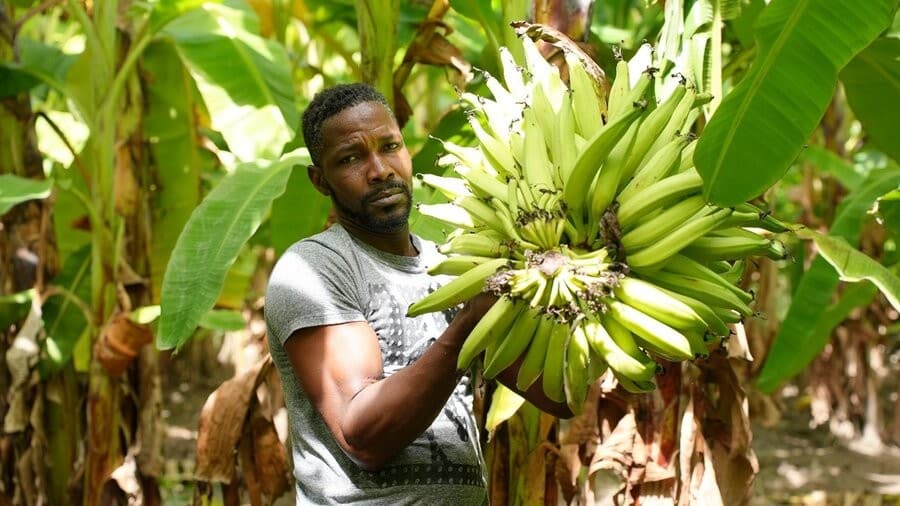
UN Response to the Crisis in Haiti
Last October, the UN Security Council authorized the deployment of a multinational security support mission (MSS) to back Haiti’s beleaguered police force, which Kenya offered to lead. It is expected that the operation will include 1,000 Kenyan personnel. The security mission will not be a UN operation, unlike MINUSTAH, the UN peacekeeping mission to Haiti, which ended in 2017.
Maria Isabel Salvador the UN Special Representative for Haiti, said in her last report to the Security Council that while improving the security situation is essential to break the cycle of overlapping crises besetting the country, long-term stability can only be achieved through a nationally owned and inclusive political process, including credible elections.
The UN in Haiti (BINUH) has backed recent inter-Haitian talks. An agreement on political reform and transparent elections was reached in December 2022.
The UN has launched a humanitarian response plan, which requires $720 million to assist more than three million people. However, it is only 23 per cent funded.
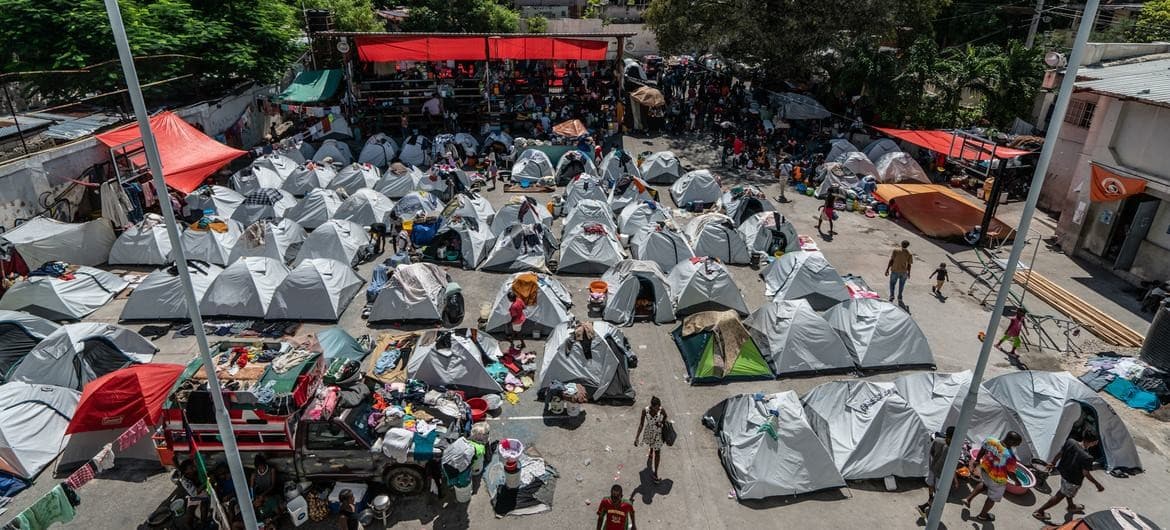
The role of the UN Agencies in the crisis
In 2024, UNICEF estimates that 3 million children across Haiti will require humanitarian aid due to escalating violence, malnutrition, cholera resurgence, and basic services on the verge of collapse.
420,000 children receive daily meals at schools across the country, with support from WFP, the World Food Programme.
The WHO plans to strengthen response capabilities for cholera and epidemics in Haiti by collaborating with limited health partners.
UN Women, in collaboration with CARE International, government, and UN agencies, has bolstered its team in Haiti.
SDGs: Sustainable action points for
Among the Sustainable Development Goals at stake in Haiti are #3: Good Health and Well-Being: # 5: Gender Equality, #8: Decent Work and Economic Growth, #10: Reduced Inequalities, and # 16: Peace, Justice, and Strong Institutions.
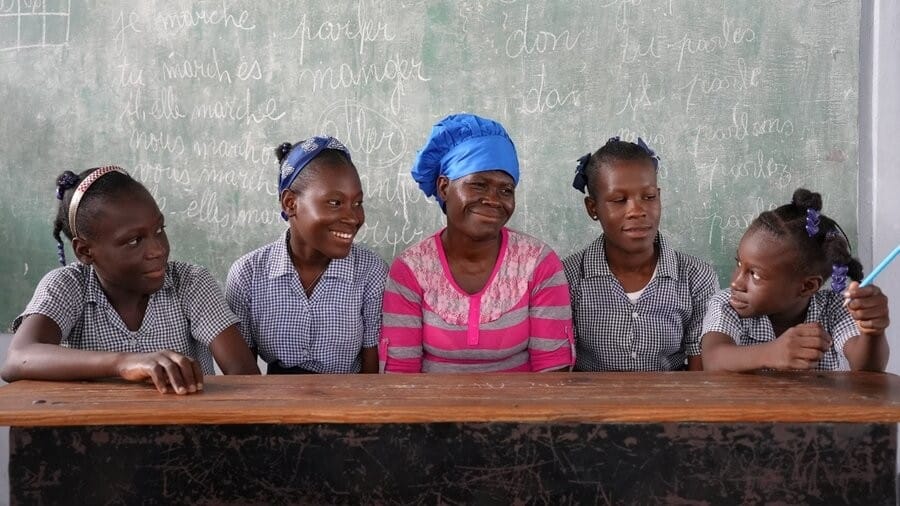
Make a difference and get involved:
Your voice matters! Share this article on your social media and talk about this crisis in your network.
You can also choose to help through the UN agencies involved.
- Make your donations today with these links.
- Support gender equality: UN WOMEN
- Give a meal to Haitian people in need: WFP
- Give children in Haiti the future they deserve: UNICEF
- Help WHO to fight epidemic outbreaks: WHO
___
Read more: Latest response from the UN: https://news.un.org/en/story/2024/01/1145897
